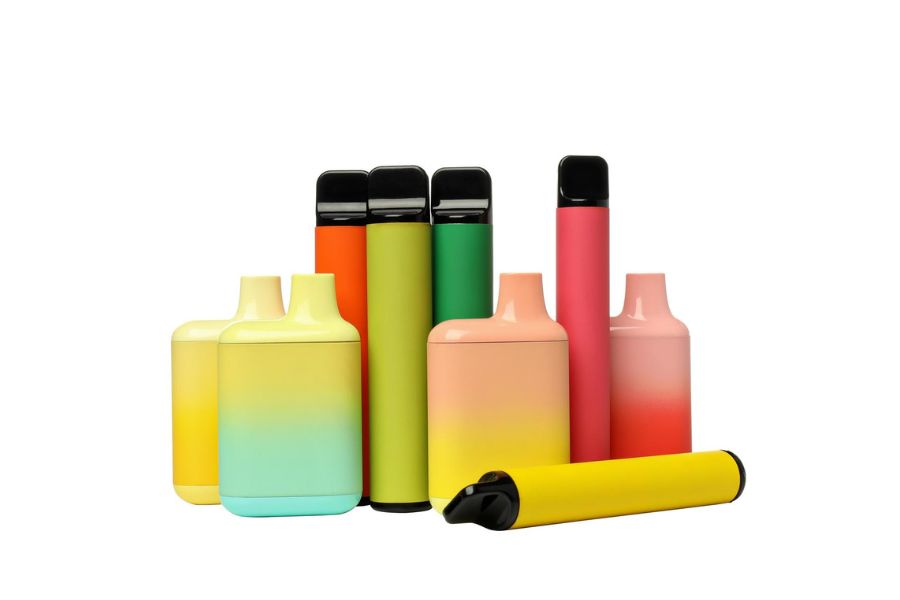The holiday seasons are the busiest but most profitable time for retail businesses. According to research, if retail sales were fairly divided throughout the year, the Holiday quarter would account for 25% of total sales each year. How can businesses maintain a smooth-running operation among all the hustle and bustle? Here are 7 tips to help store owners optimize retail operation and their holiday for the business.
Automate order fulfillment
The holidays put a lot of pressure on warehouses that use manual order fulfillment methods, which need employees to run up and down aisles picking items and packing orders for delivery. These processes are labor-intensive and time-consuming under normal volumes, and the stress is intensified during peak season. If your company is having trouble keeping up with holiday demand manually, it may be time to consider order fulfillment automation.
To automate order fulfillment, many businesses nowadays are using point-of-sale (POS) solutions. This system can handle multiple processes of your business, ranging from payment processing, inventory to delivery requests. This is a powerful tool to automate order fulfillment during the holiday season. If you are looking for a tool like this, check out ConnectPOS and its strengths in real-time synchronization. With this feature, you can stay updated about the status of each order and stock level while order fulfillment is processed automatically.
Train seasonal employees
To handle the high traffic to store during holidays, many retailers hire seasonal employees. Although they may not work with you in the long term, the seasonal staff is an important part of the whole holiday retail operation. Just because people work for you as temporary employees doesn’t mean they don’t demand your time; in fact, if you want to increase your sales, they will require even more.
Therefore, you should provide proper training for them, which should go beyond teaching them how to work at a register. Recent data indicates that this is a serious issue: Shoppers feel they are more knowledgeable than sales associates in 83% of cases. It’s critical to provide product and trend information to your staff so that they can assist consumers in putting together their carts. Customers who engage with competent store staff are more likely to buy and have a better shopping experience.

Pay attention to supply chain
Given the volume and speed of sales during holiday seasons, supply chain decisions will determine whether or not a business succeeds. Retailers must recognize the factors that influence their forecasts. You may get a better view of how to flow inventory by taking into account external causals and how they affect projections. This helps you avoid costly mistakes like understocking or overstocking.
Another remark is to place your orders early, because multiple retailers may order from the same suppliers (and of course, you don’t want to miss out on the specialties of this year’s holiday season). To save time and ensure better accuracy in the supply chain process, you can also use inventory management tools (such as MSI for multi-store businesses by ConnectPOS). Systems like this can automate your inventory management process and makes stock-taking easier.
Combine online and offline channels
For both attracting new customers and driving loyalty with existing customers, digital channels will continue to be a significant touchpoint in the consumer purchase cycle. The good thing about combining online and offline channels is that you have multiple locations to share the shopping traffic of your store. There are different practices when it comes to omnichannel shopping, including curbside pick up, home delivery, or the traditional in-store experience.
According to a study, consumers who purchase both in-store and online with a retailer spend twice as much over the holiday season than those who just use one channel. Indeed, different selling locations can also serve as multiple alternatives for consumers. For example, those who couldn’t find an item in-store can go to the eCommerce website to place a delivery-to-home order.
Follow COVID-19 safety restrictions
After suffering greatly as a result of the pandemic, we understand that shops — particularly those considered non-essential — are looking to generate money over the upcoming holiday season. Needless to say, in the next weeks of holidays, retailers should contribute to ensuring employee and consumer safety by a series of practices. COVID-19 can directly influence the holiday retail operation of your business (such as if a staff gets positive results). Prevention is better than cure.
Perhaps the best way for retailers to protect both customers and employees from the coronavirus is to keep doing what they’ve been doing since the outbreak began: encouraging good hygiene and social distancing. This includes encouraging all customers and employees to wear masks, distributing hand sanitizer, limiting the number of people in stores, establishing one-way lanes, etc. Employees should be informed of these priorities on a daily basis, and checklists should be provided to ensure that policies are followed.
Above all, this is only good for everyone’s health but also shows that your brand is caring for the community.
Plan your marketing strategy
For holiday marketing, don’t leave it till the last minute. Give yourself a month if you’re managing these methods on your own. If there are other vendors or agencies involved, you may need longer time, but be careful to discuss turnaround time frames with them.
Consumers no longer begin their purchasing experience by casually visiting stores. Consumers start shopping experiences online, whether on websites, search engines, SMS/Whatsapp/Viber messaging, or emails. You can start sending newsletter stating the upcoming promotions or exclusive events to loyalty programme members.
Moreover, memories flourish over the holidays, and embracing nostalgia helps you connect with your audience. Take your customer group one step further with a personalized advertising approach. You can based on the customer profile with their past purchases and wishlist to know what they often prefer to shop at your store.
A great example of personalized marketing is Target, an American retail giant. After the first engagement with the company, every Target customer is given a Guest ID number. That ID is used to record and track the customer’s demographic information. In this way, Target’s marketing analysts were able to create a “pregnancy prediction” score. The purchase habits will tell a client who had baby registries in which pregnancy stage. Staff members can then provide suitable suggestions or send a newsletter to this targeted group.
Consult sales trends
Trends over the last several months, as well as historical data, can help forecasters better identify which product categories or goods will be the most popular in the upcoming season. However, we recommend paying attention to external factors, such as weather or most recently the pandemic, and how they influence your revenue. If possible, have a backup plan for any disruption you can foresee.
Wrapping up
Now that you know how to optimize holiday retail operation, it’s time to make it happen. Contact ConnectPOS today if you want to collaborate with a leading point-of-sale provider in the upcoming holiday season!
ConnectPOS is a all-in-one point of sale solution tailored to meet your eCommerce POS needs, streamline business operations, boost sales, and enhance customer experience in diverse industries. We offer custom POS with features, pricing, and plans to suit your unique business requirements.




